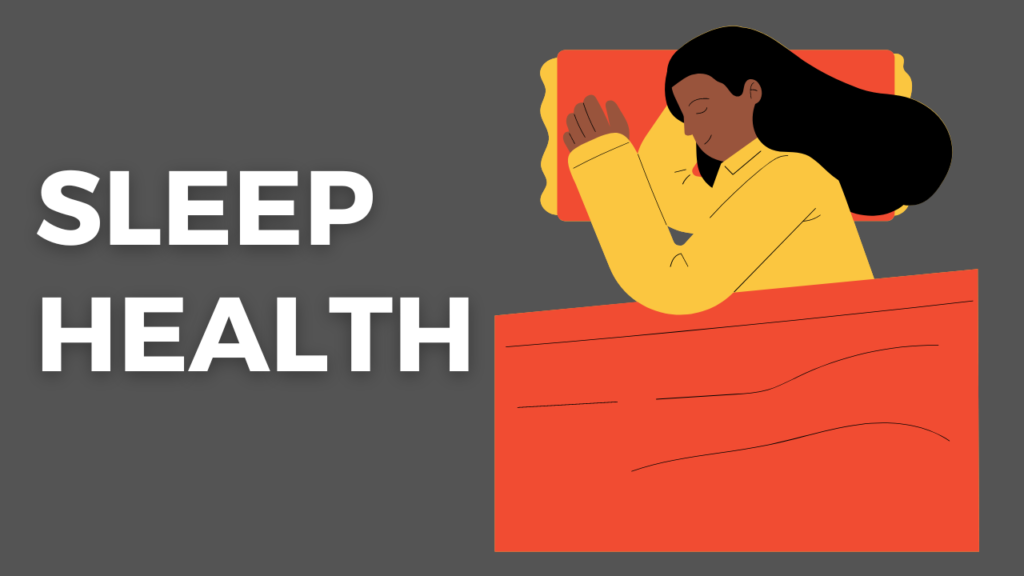Sleep health

Sleep is an essential function of the body that helps us restore and rejuvenate. It is important for our physical, mental, and emotional well-being. However, many people struggle with getting enough quality sleep.
Sleep health refers to the quality and quantity of sleep that a person gets on a regular basis. Poor sleep can lead to a number of health problems, including obesity, diabetes, heart disease, depression, and anxiety.
Here are some tips for improving sleep health:
- Stick to a regular sleep schedule: Try to go to bed and wake up at the same time every day, even on weekends and holidays.
- Create a relaxing bedtime routine: Engage in relaxing activities before bed, such as taking a warm bath, reading a book, or listening to calming music.
- Make your bedroom sleep-friendly: Keep your bedroom cool, dark, and quiet. Use comfortable bedding and pillows.
- Avoid stimulants before bedtime: Avoid caffeine, nicotine, and alcohol before bed, as they can interfere with sleep.
- Limit screen time: Avoid using electronic devices, such as smartphones, tablets, and computers, before bedtime, as the blue light emitted from these devices can disrupt sleep.
- Exercise regularly: Regular exercise can improve sleep quality and duration.
- Manage stress: Stress can interfere with sleep. Try stress-reducing techniques, such as meditation, deep breathing, or yoga.
If you continue to have trouble sleeping, talk to your healthcare provider. They may be able to help you identify the underlying cause of your sleep problems and provide treatment options.
- Recommended hours of sleep: Most adults need 7-8 hours of sleep per night to function well. However, individual sleep needs can vary, and some people may need more or less sleep to feel rested.
- Sleep stages: Sleep is divided into two main stages: non-REM (NREM) sleep and REM sleep. NREM sleep includes four stages, each with a different level of brain activity and muscle tone. REM sleep is the stage where most dreaming occurs.
- Sleep disorders: There are many sleep disorders that can disrupt sleep, including insomnia, sleep apnea, restless leg syndrome, and narcolepsy. These disorders can have a negative impact on physical and mental health, and may require medical treatment.
- Impact of sleep on health: Sleep plays a critical role in maintaining good health. Lack of sleep can increase the risk of obesity, diabetes, heart disease, and other chronic health conditions. Poor sleep can also impact mental health, leading to depression, anxiety, and mood disorders.
- Benefits of good sleep: Getting enough quality sleep can have many benefits, including improved mood and cognitive function, better physical health, and increased productivity.
Overall, sleep health is an important aspect of overall health and well-being. By following healthy sleep habits and seeking medical treatment for sleep disorders, you can improve the quality and quantity of your sleep and reap the many benefits of good sleep.






